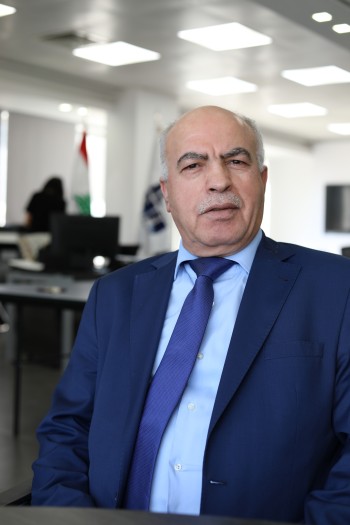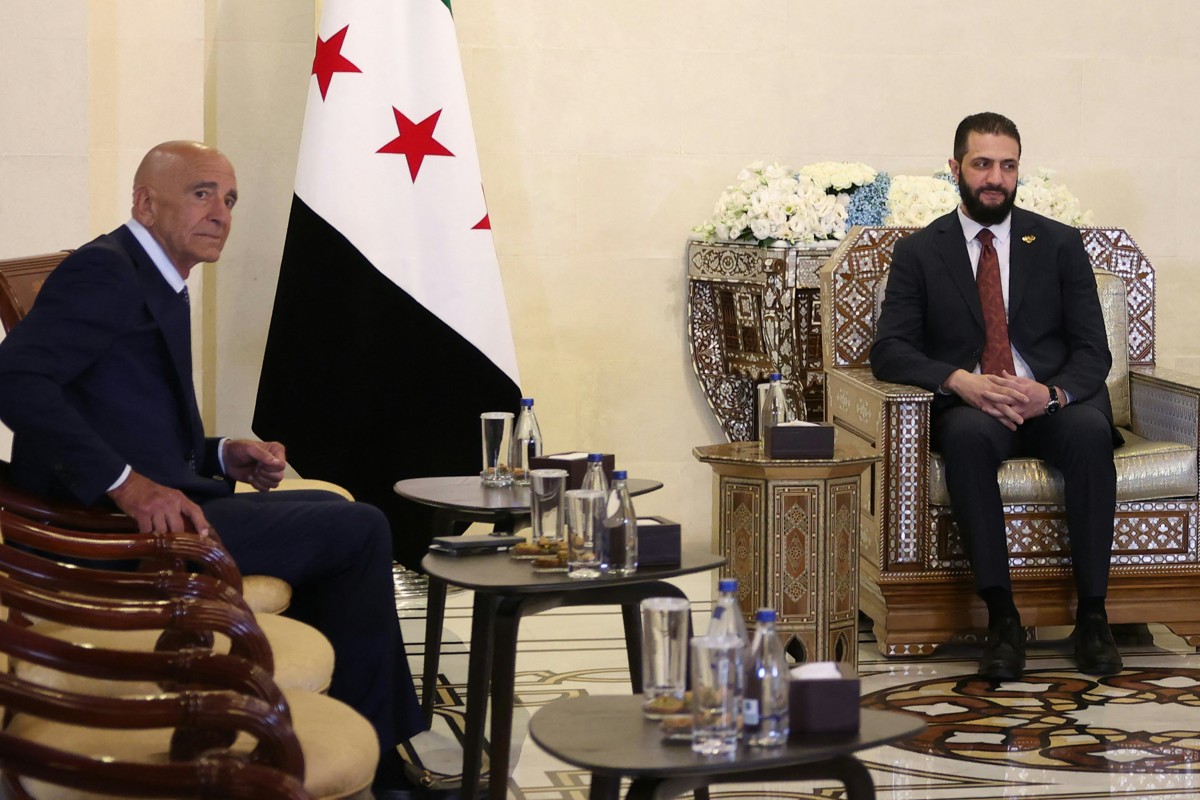As U.S. presidential envoy Tom Barrack shuttles between Beirut and regional capitals, and with Syrian-Israeli negotiations quietly gaining traction, Lebanon appears caught in what can be described as a new form of political and geographical “annexation and reassignment.” The process evokes long-forgotten historical claims and maps, revived amid a fragile Lebanese political landscape and rising regional and international tensions.
This campaign began with leaked remarks from associates of Syria’s transitional president Ahmad Al-Sharaa, expressing a desire to reclaim northern Lebanon and the Beqaa Valley—lands they allege were “torn away” from Syria during the French Mandate. Simultaneously, Barrack issued a stark warning: Lebanon risks “slipping back into Greater Syria” if it fails to act on "Hezbollah"’s weapons arsenal.
In a shift from the soft diplomatic language used during his stay in Beirut, Barrack adopted a more forceful tone, warning that Lebanon is “in danger of falling under regional powers’ control” unless it addresses "Hezbollah"’s military stockpile, deeming the issue “existential.” He stressed that the U.S., Saudi Arabia, and Qatar are prepared to help, but only if Lebanon takes the lead on disarmament.
President Joseph Aoun, for his part, continues to affirm that “the decision to ensure all weapons are in state hands has been made and is irreversible.” He underscored that this step would be implemented in a way that safeguards national security and unity. His statement served as a message to Palestinian factions, which had agreed—via an understanding between Aoun and Palestinian President Mahmoud Abbas—to hand over their arms last month. The agreement faltered due to internal Palestinian divisions.
Importantly, Aoun’s remarks were not directed at "Hezbollah", whose weapons remain the subject of a broader national dialogue aimed at integrating them into a comprehensive security strategy. "Hezbollah", for its part, submitted a separate document to Barrack—transmitted via Speaker Nabih Berri—detailing its position. Senior "Hezbollah" figure Mahmoud Qomati revealed that the party’s main demand is for the full implementation of a ceasefire agreement before discussing any further steps.
Lebanon’s Military Dilemma
Amid these diplomatic maneuvers, the Lebanese Army faces a crippling funding shortfall. While it received $250 million annually from the U.S. over the past two years, that assistance has now been halted. The lack of funding jeopardizes not only the army’s operations in southern and northern Lebanon but also the work of UNIFIL forces deployed under UN Resolution 1701.
Barrack revealed that Washington’s efforts to secure alternative funding from Gulf allies failed, as these states cited concerns that previous aid to Lebanon had been misappropriated by corrupt officials.
A Dark Scenario Looms
If Lebanon and Israel fail to reach an agreement, analysts fear the country could face a “worst-case scenario”:
UNIFIL Mandate Not Renewed: The mission’s mandate could expire by the end of August due to financial constraints and growing tensions between the EU, which supports a two-state solution, and Israel, which opposes such a move. Major European contributors to UNIFIL include France, Germany, Spain, Italy, and the Netherlands.
A Syrian-Israeli Peace Deal?: On September 9, during the UN General Assembly in New York, a high-level meeting may be held between Syrian President Ahmad Al-Sharaa and Israeli Prime Minister Benjamin Netanyahu, under U.S. President Donald Trump’s patronage. A “historic peace agreement” could be announced. This deal is reportedly being finalized in secret Syrian-Israeli negotiations in Baku, Azerbaijan, and follows Al-Sharaa’s recent meeting with Israeli National Security Adviser Tzachi Hanegbi in the UAE.
Should such an agreement materialize, Lebanon risks being sidelined—both politically and economically, especially in the context of Syria’s post-war reconstruction.
According to Barrack, Lebanon must deal directly with Israel—“mediation is futile, only bilateral engagement counts.”
Shifting Perceptions
Lebanon now faces yet another challenge: a perceptual shift among Syrians and Gulf states, who increasingly view Beirut’s leadership as aligned with the Iran-led “Axis of Resistance.” Some Syrian officials, reportedly harboring resentment toward "Hezbollah" and its allies, now regard Lebanon as a “hostile state.” They also question why President Aoun visited various Arab and Western capitals but has yet to make an official visit to Damascus.
A Subtle Signal from Syria?
One development that may reflect U.S. policy toward both Syria and Lebanon came when the U.S.-backed Kurdish group, the Syrian Democratic Forces (SDF)—a wing of the PKK—agreed to disarm. This happened shortly after Barrack left Beirut for Damascus, where he brought together Al-Sharaa and SDF Commander Mazloum Abdi.
Please post your comments on:
[email protected]
 Politics
Politics








